Early Years (EYFS)
EYFS Curriculum Intent Statement
“Every child deserves the best possible start in life and the support that enables them to fulfil their potential. Children develop quickly in the early years and a child’s experiences between birth and age five have a major impact on their future life chances. A secure, safe and happy childhood is important in its own right. Good parenting and high quality early learning together provide the foundation children need to make the most of their abilities and talents as they grow up.”
At SS Peter and Paul Catholic Primary School, we know that a child’s early years are a vital time for learning, growth and development. Therefore, we are committed to offering every child—regardless of background, need or starting point—an inspiring, ambitious and fully inclusive early‑years curriculum that lays the strongest possible foundations for lifelong learning, wellbeing and citizenship.
Our Nursery and Reception classes provide a warm, welcoming and stimulating environment where children can thrive.Grounded in the statutory principles of the Early Years Foundation Stage (EYFS, 2025) and the duties set out in the Children Act (1989 & 2004) to safeguard and promote welfare, our intent is built around three elements: Love of Learning, Respect for Self & Others, and Care for the World.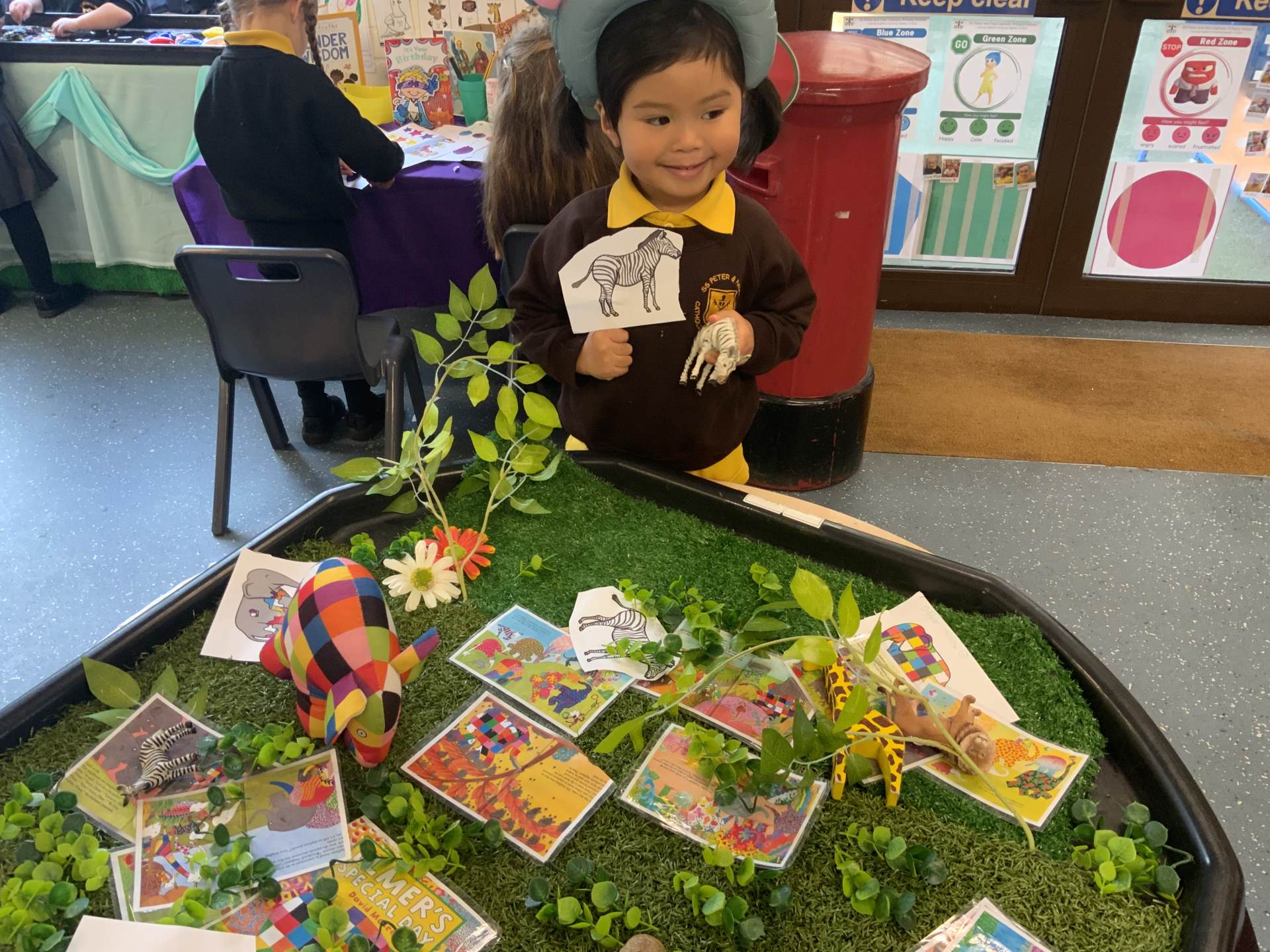

Prime & Specific Areas of Learning
We prioritise the Prime Areas—Communication & Language, Physical Development, and Personal, Social & Emotional Development—because they underpin all future progress. Through purposeful play, high‑quality adult interactions and rich vocabulary we develop confident communicators, resilient movers and emotionally literate citizens.
Alongside, we weave in the Specific Areas—Literacy, Mathematics, Understanding the World, and Expressive Arts & Design—so that children explore print with joy, think mathematically, investigate how things work, celebrate creativity and appreciate diversity. We develop our literacy and maths skills using the Little Wandle Phonics programme, White Rose Maths and Mastery programmes.
Guided by the ethos "Learning together, achieving together in Christ," we nurture each child’s spiritual, moral, and emotional development through a loving, faith-filled environment, enriched by our RE programmes Ten Ten and Come and See, which help children begin to understand Gospel values, prayer, and the presence of God in their daily lives.
How We Teach
We believe young children learn best through purposeful play, hands-on experiences, and meaningful interactions with adults and peers.
We follow the three characteristics of effective learning:
- Playing and Exploring – children investigate and try new things.
- Active Learning – children stay focused, keep trying, and enjoy achieving.
- Creating and Thinking Critically – children think, solve problems and make decisions.
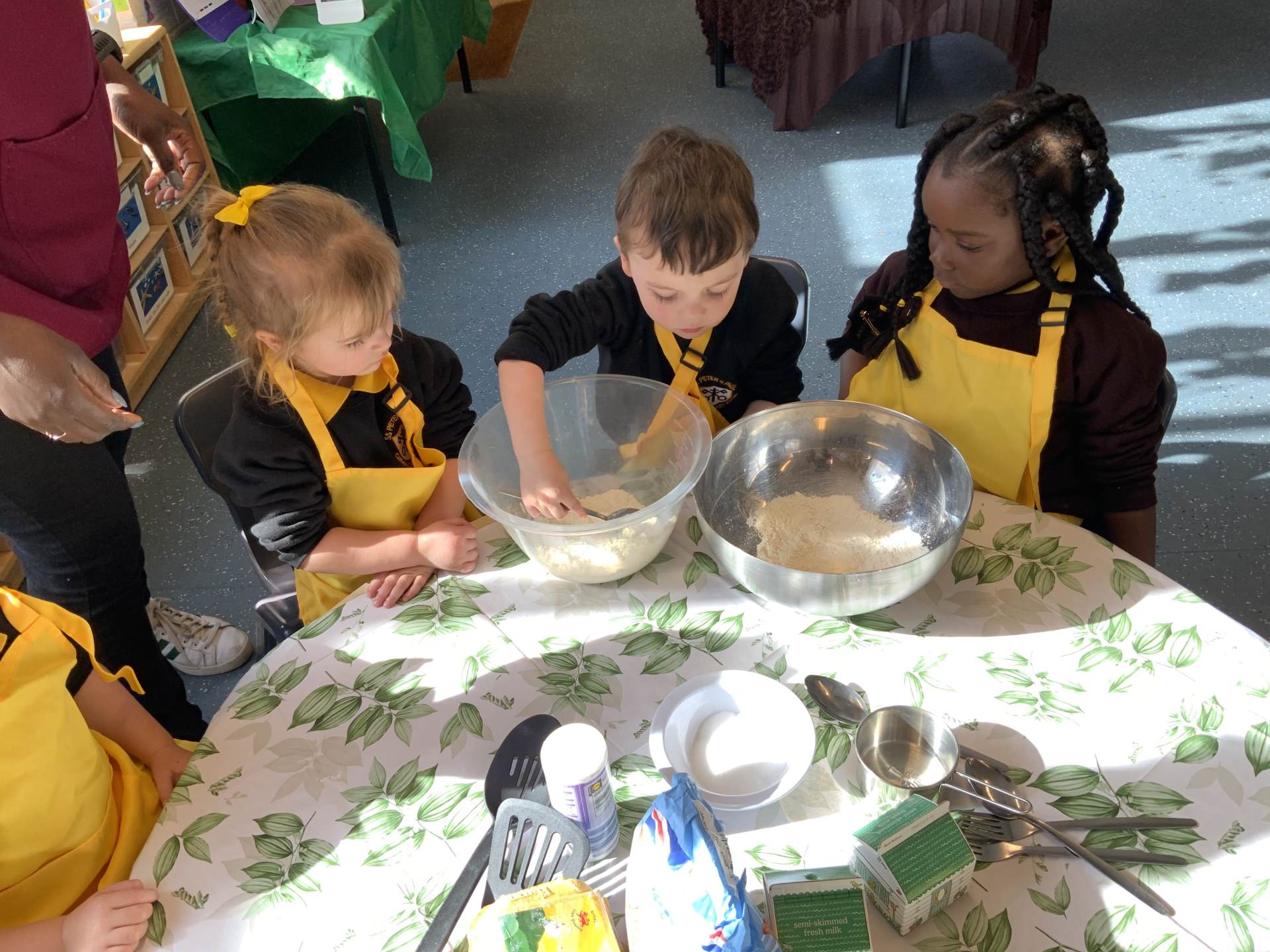
Assessment & Pedagogy
In line with Development Matters (DfE, 2021) and Birth to 5 Matters (Early Education, 2021), assessment is formative, continuous and proportionate. Skilled practitioners use close observation, accurate professional judgment and the child’s voice to shape next steps, while summative checkpoints—the Reception Baseline and EYFS Profile—ensure each child’s progress is captured and any gaps swiftly addressed.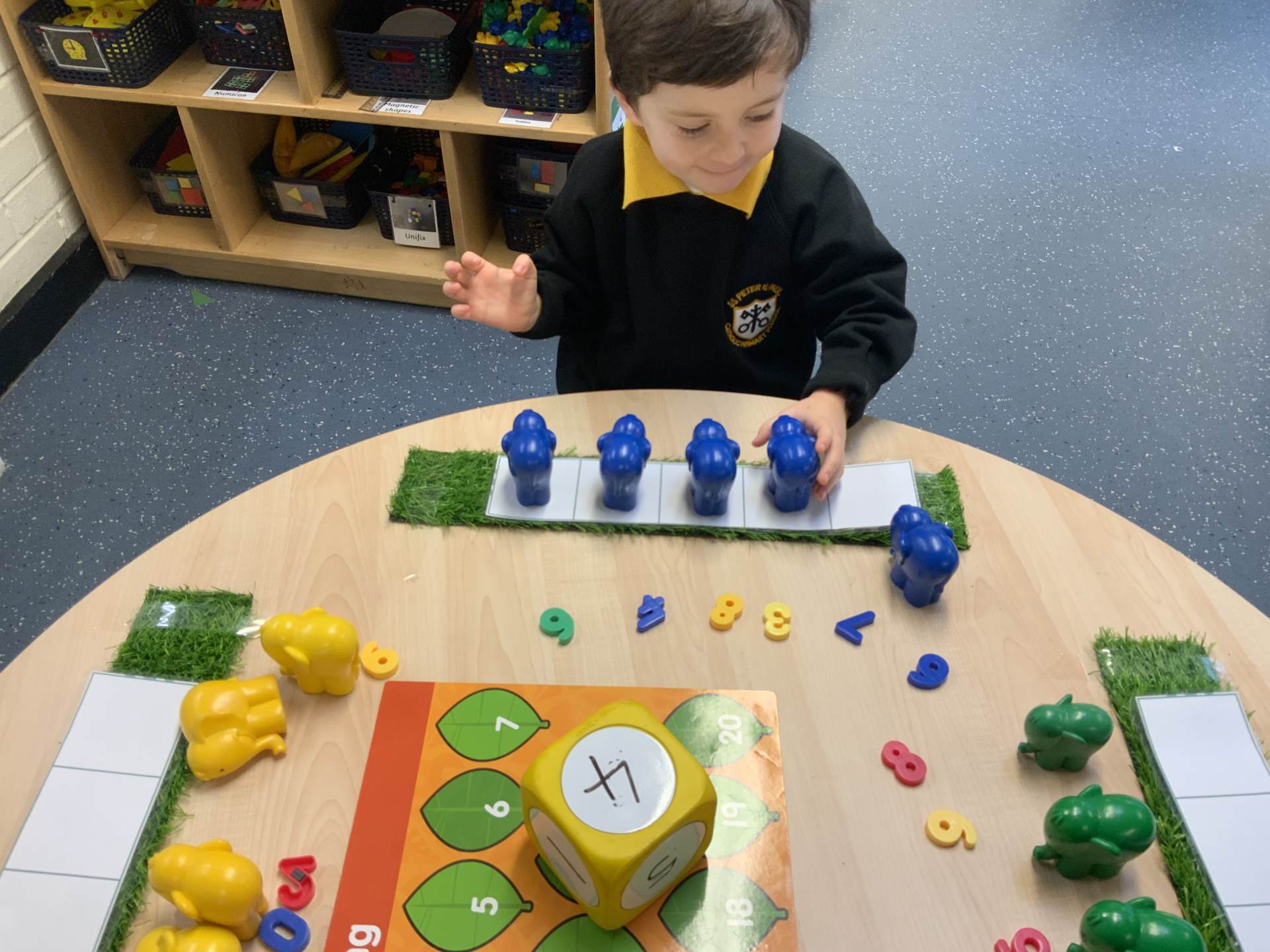
Cultural Capital
We consciously broaden children’s horizons, drawing on their interests and community heritage to build cultural capital.Visits to local parks, libraries, museums and workshops and visitors from the wider community, a multilingual story bank, and celebrations of global and British cultural events ensure every child gains experiences that enrich knowledge, language and aspiration.
The Enabling Environment
Our indoor and outdoor environments are purposefully designed as the “third teacher.” Open‑ended resources, natural materials, eco‑gardens, loose‑parts play and risky‑play zones invite curiosity, critical thinking and stewardship of the planet. Continuous provision is enhanced by provocations that mirror seasonal change and children’s fascinations, fostering self‑initiated learning and sustained shared thinking.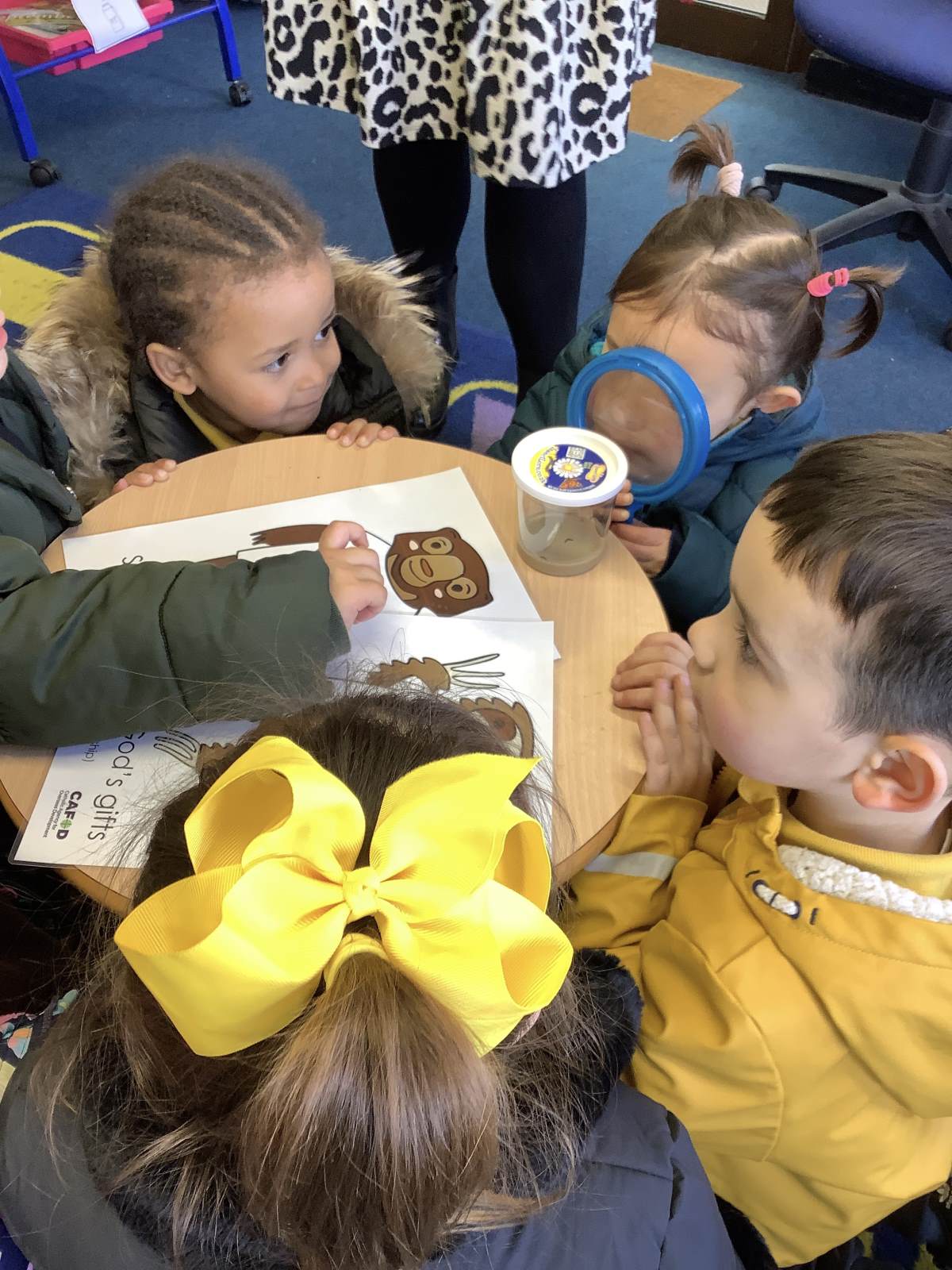
Inclusion & Safeguarding
Guided by the SEND Code of Practice (2015) and Keeping Children Safe in Education (2024), we remove barriers, make reasonable adjustments and work in partnership with families and specialists. Children’s rights, voice and safety are non‑negotiable; we cultivate a culture where safeguarding is everybody’s responsibility.
Outcomes
By the end of the EYFS, children leave us as enthusiastic, capable learners who:
- Communicate effectively in a language‑rich context.
- Collaborate, care and self‑regulate in diverse social groups.
- Read, write, count and reason with confidence.
- Question, create and innovate, grounded in an appreciation of nature and sustainability.
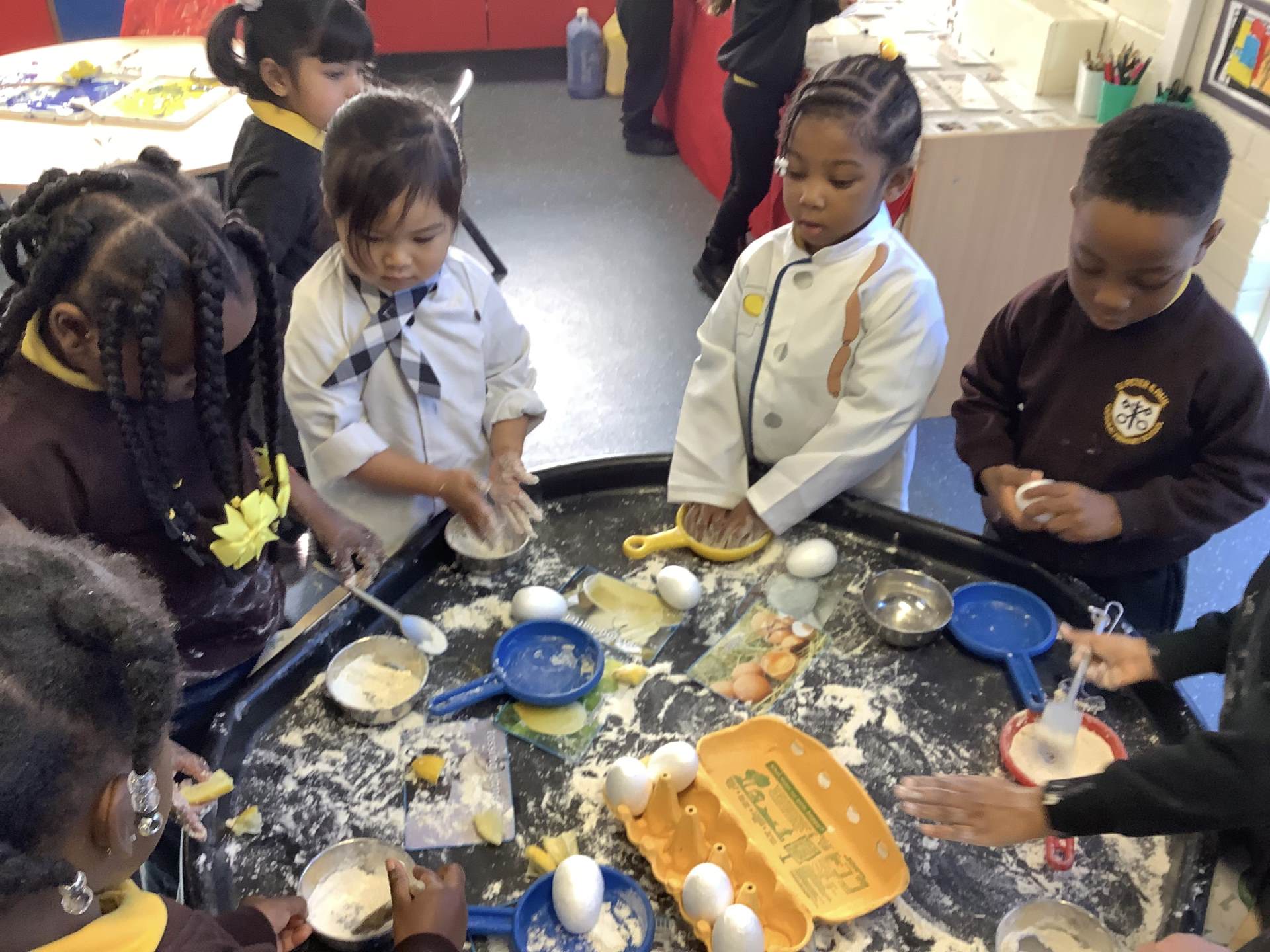
In short, our curriculum intent is to nurture curious minds, compassionate hearts and courageous spirits—preparing every child not only for Key Stage 1, but for a rapidly changing world.
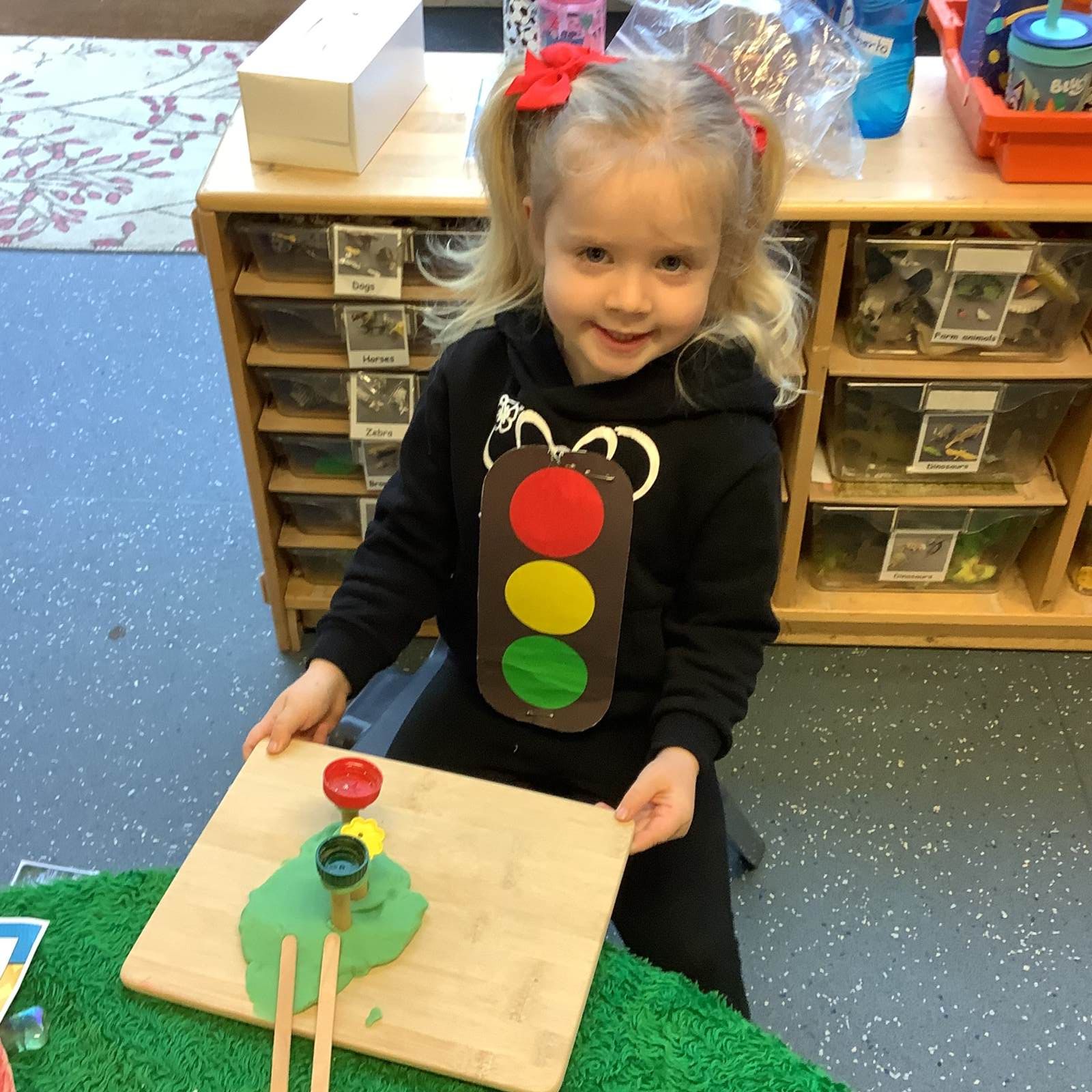
-
EYFS Policy
download_for_offline
download_for_offlineEYFS Policy



















